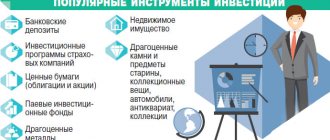One of the State Duma deputies proposed banning Russian citizens from working part-time at other jobs.
In his opinion, working two or even three jobs, a person simply does not have time to rest, his working capacity gradually decreases, which is why productivity suffers. One cannot but agree with such arguments. But the question is different: is there enough money to live on one salary?
According to Rosstat, our citizens earn on average 51 thousand rubles. per month. At first glance it looks good, especially for small cities. However, you need to understand that in reality, few people receive that kind of money. The dispersion between regions is very large. In the Tambov region. the average salary in February was 29 thousand rubles, and in the Yamalo-Nenets Okrug - almost 110 thousand. Rich regions are raising the average bar, while in most regions salaries are below this level. Other figures describe the situation much better: more than half of Russian citizens (53.7%) in the first quarter of this year had an income of less than 27 thousand rubles. per month. Every fourth person earned from 27 to 45 thousand. That is, the majority have a salary below average.
The Ministry of Labor wants to calculate the minimum wage without a consumer basket. What does this mean for Russians? More details
Determining a comfortable monthly income
First you need to decide what amount per month will be enough for you. There is no need to immediately invent cosmic numbers.
Name an adequate amount for a comfortable life. Naturally, it will be different for everyone. Factor of. For some, tens of times. )))
Let's take 50 thousand per month as an example. For Moscow, such a level would be considered beggarly. Quite acceptable or even very good for the province. In the village - with such an income, you are godfather to the king.
So, you will be quite satisfied with the amount of 50,000 monthly. It comes out to 600 thousand a year.
Next, all that remains is to calculate how much money you need to have in order to receive the required amount every month.
There are several options.
Change your attitude towards money to become happy
Being obsessed with wealth will never make a person happy. Therefore, he must first change his way of thinking in order to feel harmony with the inner and outer world. It is worth paying attention to the social factor - you should not copy other people's behavior and think like others. Each person has his own happiness. And in the pursuit of earning the required amount of money, you can miss something really important.
Someone may be indignant and say that all this is lofty matters, but in fact a person cannot live without money. It's right. But money is not the cause of happiness, it is only a means to achieve it.
Option 1. Simple
It's simple. Determine for yourself how long you want to live after retirement. We divide the required capital into equal parts. The quantity is equal to the survival period. And every year we withdraw 1 part for living.
We get that for 5 years of life we need to have 3 million rubles (50,000 x 12 months x 5 years).
10 years - 6 million, And so on.
With this scheme we have several problems at once.
- Unclear. How many years will you live in retirement? There is always a risk of having time to eat up all your capital during your lifetime. And not die. Is it good or bad?
- The sooner you retire (rest, not what you thought), the more money you need for your future long life. Leave at 40 or 60. The difference in the required capital is more than ten million.
Why do people value money so much?
Usually a person’s desire to obtain as much material wealth as possible is explained by the fact that he has completely different needs that have not been satisfied. The attitude towards such benefits is formed from childhood. Those who lived in poverty are more dependent on the money factor. The following factors also influence a person’s opinion about money:
- rivalry between rich and poor (the desire to become better than someone else);
- parents' opinions about money;
- ethical or religious beliefs.
The more dissatisfied a person is with himself, the more attention he pays to the financial aspect of his life. It is only after achieving his dream that he is often disappointed. The desire to have money without any reason (shopping, traveling, etc.) is only a consequence of problems. Therefore, in order to become happy, you should first understand yourself and resolve existing issues. Most often, such situations arise if a person wants:
- feel safe;
- gain freedom;
- gain access to power;
- receive warmth, love and care.
Inflation
In this scheme we did not take into account the constant depreciation of money. Inflation will erode your capital every year. In fact, you will also receive fifty dollars a month. But... purchasing power will be lower and lower.
In 10-15 years, your 50,000 will actually cost 25-30 thousand. And every year you will have to live more and more modestly. And die in complete poverty.
What to do?
Each year, withdraw an amount indexed by inflation. In the first year 50 thousand. In the second, let's say 52 thousand, the third - 55.... in the 20th year - 100 thousand.
Crap! Then you need even more money. In this situation, the previously calculated capital will definitely not be enough.
How much more? And no one knows what inflation will be in the future. If you take it with a reserve, then several times for sure.
I won't burden you with calculations. For example, I’ll say that with inflation of 7% per year (and this is approximately the average annual data for the last 10 years in Russia), we get:
- The capital of 9 million will end in 10 years (instead of the planned 15);
- 12 million will run out in 11 years (lost 4 years);
- You will spend 18 million in 16 (instead of 30 years).
Not a very bright prospect.
Is it possible to do something about this?
The easiest way to protect money from inflation is to open a bank deposit.
On average, interest on deposits is at the level of inflation.
This means that the interest received on the deposit will compensate for the depreciation of your capital. And you can safely spend the planned amounts + additional amounts due to inflation without fear.
Accumulation for the sake of accumulation
Unfortunately, in modern society, money has become the main value for many citizens. People strive to accumulate as much as possible without thinking about whether this wealth will make them happier?
If a person saves for nothing, then no amount of money will be enough for him to be happy. You shouldn’t treat this as true happiness. Money can only become a tool, a means, an opportunity, but not happiness itself. If you are saving to buy your own home, start a business, or help a loved one, then estimating the amount of capital required will be much easier - just calculate how much the home will cost and how much starting capital is needed.
For money to bring happiness, you need to move away from the accumulative model of behavior. Having funds in reserve is almost always pointless. They will bring joy only if they are used and invested. It is the practical application that will determine whether a person becomes happy or not.
Second option. Living on interest
Another method involves living only on the income you receive.
We place capital in profitable instruments and live happily for many, many years.
Pros:
You don't need to be afraid that your accumulated capital will suddenly run out. With this approach, you can retire at 40 or 30-20 years old (if finances allow).
For a long life “retirement” (30-35 years), you will need to save less money. Than simple consumption of capital.
Minuses:
For short periods of life (for example, when you retire at 60 and plan to live another 15-20 years), on the contrary, you need more significant capital.
And how much money do you need for a comfortable life?
It all depends on the income received from the investment.
I am always fascinated by the guys who give the following type of calculations in their articles...
“We invest money at 10-15% per annum. Some even voice 20-30%. And we live on the income we receive.”
Based on their data, you need to accumulate and invest only 4-6 million (at a rate of return of 10-15% per annum). And if you have a profit of 20-30%, then you can get away with “a paltry 2-3 million.” And this is happiness. You are provided with passive income for life.)))
I won’t say anything about 20-30 per annum (fairy tales). But you can get 10-15%. But with a small caveat. This is the nominal yield. Excluding inflation.
You earned 10% in a year. Fine. But during this period the money depreciated by 7%.
How much profit did you actually make? Only 3% per annum. This is real profitability.
So forget about double-digit returns.
All you can count on is 2-6% per annum. In real data. Cleared of inflation.
What can provide such profitability?
- Shares - estimated growth of 4-6% per annum.
- Bonds - about 2% per annum.
- Deposits: from -1-2% to +0.5-1%.
- Real estate - 3-5%.
On average, you can hope for a return in the region of 3 to 5% per annum.
Now you can roughly calculate how much money you will need to not work and live peacefully on the interest from this income. Planning to receive monthly around 50 thousand rubles.
In the table, the minimum required amount of money, at different average annual returns.
Let's take the average option - 4% per annum. Then for a comfortable “eternal life” you will need a capital of 15 million rubles.
Note! If you plan to live in retirement for more than 25 years, then this method is more profitable for you. Than simple consumption of capital, as in the first option.
Does happiness depend on the amount of money?
This question interests not only people, but also scientists. So, researcher Tang conducted a survey to find out how people feel about money. And it turned out that those who earn a lot associate monetary happiness not with the availability of funds, but with the achievements that preceded it. Those who only have enough money to live on simply want to ensure their safety and comfort.
Tang found that there is no direct connection between happiness and money. After the survey, it also became clear that a person satisfied with his life associates happiness with the following factors:
- leisure, hobbies, hobbies – 42%;
- family, close people – 39%;
- favorite job – 38%;
- quality of life – 38%;
- social circle, friends – 37%;
- harmony in love – 34%;
- own health – 25%.
However, the absence of a direct relationship does not mean that money does not affect a person’s mood.
Reducing your wishes
Many will say, where can I get these 15 million? You won't earn that much in your entire life. Even taking into account investments and compound interest, constantly saving money every month. Especially if you have a small salary.
Agree. The option is not for everyone.
All that remains is to curb your appetites. And expect to live not on 50, but on a smaller amount. 40-30-20 thousand per month.
As a kind of bonus, for “old” future pensioners (from 60-65 years old) some kind of state pension will be awarded (but this is not certain, it may be canceled in many years).
In the end, as one of the options. We set the desired income to 30 thousand. Taking into account a possible future pension from the state (let it be 10 thousand).
In total, we need to provide ourselves with an additional income of 20 thousand rubles. This immediately cuts the necessary capital for a comfortable life by 2.5 times! From 15 to 6 million. And this is a more acceptable amount to achieve.
In the table. What and how much do you need to save (millions of rubles) to receive different monthly income (from 20 to 50 thousand rubles per month). At different levels of growth (annual return) of capital.
Consumer society
A person’s desires are not always able to bring him practical benefit. How often have you noticed that out of all the things you bought, you only wear a few? The rest remain lying there. This is how the thirst for consumption manifests itself. A person senselessly indulges his desires, without even thinking about whether he needs it.
But just a few decades ago, people treated money completely differently. They were not what brought happiness. The man managed to be happy even when there was only enough money from paycheck to paycheck for all the essentials.
But today the human worldview has completely changed. And sellers only fuel this interest in constant consumption, luring buyers with colorful packaging, interesting promotions and offers.
Golden triangle of happiness - harmony with yourself
There are many theories about happiness in the world. Australian Robert Cummins has compiled his own formula for happiness. It represents a golden triangle of happiness, the sides of which are:
- loved one;
- the amount of annual income;
- involvement in social life.
Happiness itself, according to Cummins, begins when a person reaches the amount that interests him. At the same time, the theory says that the main condition for happiness is social activity and love, and money only acts as a reliable rear. But in the absence of the first two conditions, money can come to the fore. As a result, a person uses money only to create the appearance that he is happy.
How to calculate how much money you need for a normal life?
When asked about the amount for a normal life, everyone can answer only for themselves.
To calculate a “normal” income for yourself, make a table in which you write down the answers to the following questions:
- Where do you live now (rented housing, parental apartment, mortgaged apartment, own home)? If it’s your own, are you satisfied with it (size, location, layout), and is it in good condition (is the house in disrepair, is there an urgent need for repairs)? If you live in a rented apartment, how much do you pay for it?
- How much money do you spend on food per month on average? If you are planning your personal finances, great: that means you know the answer. If not, try to come up with at least a roughly averaged amount (10? 15? 18 thousand?).
- On average, how much money do you spend on clothes per year? The same thing, if you can’t decide, try to estimate the number of clothes you bought last year, remember the approximate prices.
- How much money do you spend on utilities on average? You can either take summer/winter separately, or display the average for the year.
- On average, how much money do you spend on leisure and entertainment? This can include everything related to leisure: from a trip to Turkey to the purchase of an e-book. Since the amount for the year cannot accurately reflect the needs (this year you will want to relax in Turkey, and next year you will want to spend a vacation in the country) - try to average the amount for 2-4 years.
- How much money do you spend on cosmetics, hygiene products, household products? Even those who keep records are unlikely to answer this question accurately. Therefore, you can add +5-8% to the resulting amount. In fact, you can take care of yourself sparingly, even if you are a girl.
- If you smoke or drink alcohol regularly, how much money does it cost?
To the resulting number, add +20-25 % for unplanned expenses (jeans tore, moved to a new job, which is farther away, wanted a new phone, and so on), various errors (people who do not keep financial records are more likely to underestimate the numbers ) and possible treatment.
Now add 1 more column to the right to the table.
Re-read your numbers and think: is this money enough for this expense item? For example: you spend 15 thousand a month on food, but you eat monotonous and unhealthy food.
Try to estimate roughly how much more money you need to buy the products you need? We’re not talking about red caviar for breakfast, lunch, dinner: try to roughly stay in your “class”, making reasonable and adequate calculations.
In the same way, review the numbers for the remaining columns.
Conclusions: how much money does a person really need for a decent life?
To summarize, it must be said that the key factors determining human needs are the presence/absence of housing, the presence of dependents and lifestyle. Someone older could say that we have arrogant youth: they don’t know how to do anything, but they want a lot. It’s easy to reason like this from an apartment inherited or issued by the state under the Union, with a stable job, with a reserve of money “for a rainy day,” when all the processes in life are well established.
Living wage and real cost of living: are they equal? (+video)
In 2021, the cost of living in the Russian Federation was 10,328 rubles per capita. Is it really possible to live on that kind of money?
Really if:
- you live in your own small apartment in a region with cheap prices for utilities;
- you don’t have children or relatives who need financial help;
- you do not have health problems (that is, you do not need to spend money on medications, diagnostics and doctors);
- you are unpretentious in food and eat little;
- you don't have a car and don't need one.
Naturally, you don’t like to have fun, go to the seaside, often don’t buy clothes or equipment, and there’s no need for renovations in your apartment. In such a situation, yes, it is possible to live on the subsistence level if you spend only on utilities, food, and little things - on the essentials.
Shopping and souvenirs
Clothes in Cyprus are quite expensive, but there are sales on the island, during which you can buy good things with up to 70% off.
Prices for popular souvenirs that tourists bring from Cyprus:
- ceramics – 2-7 €
- T-shirts with print – 5 €
- souvenir caps – 5-6 €
- olive oil, 1 l – 5-11 €
- olives, 1 kg – 2-6 €
- goat cheese, 1 kg – 10 €
- Cypriot honey, 0.5 l - 5.5 €.
Find out what to bring from Cyprus.
Cypriot dessert wine Commandaria. Photo: basecadet / flickr.com.











